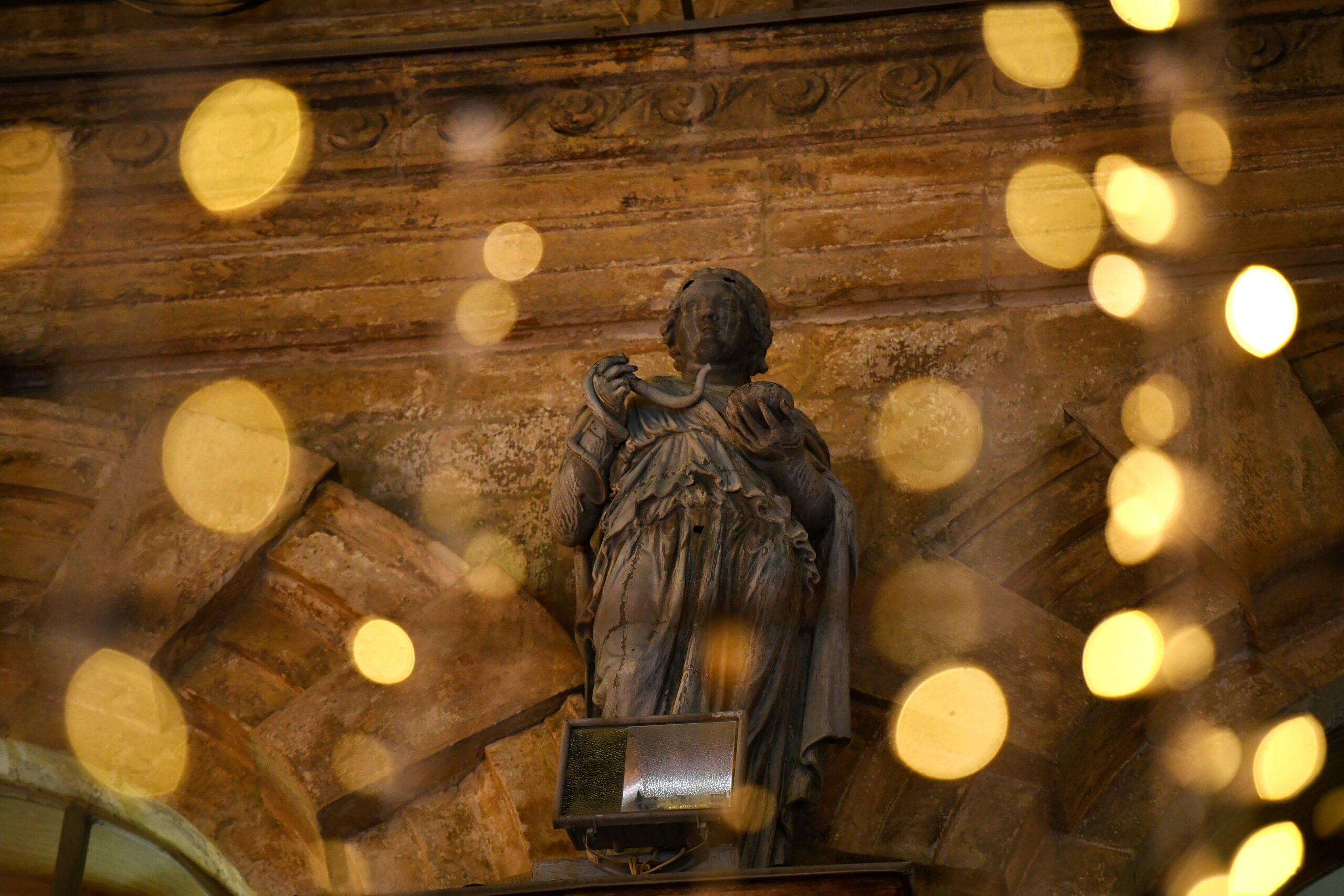If there is one thing that could improve the health of people in South Africa, it would be the shift to place the whole person at the centre of the system‘s conceptualisation, policy and practical implementation.
My current study is on ancient Greek healing, in particular the dream healing cults that rose to prominence in about 500 BCE that spread from the Greek mainland, generating more than 2 000 cultic sites with temples and spaces to seek healing through dream incubation.
Dream healing is as old as human beings are, so my focus goes to two figures from the ancient Greek dream healing cult, Hygieia and Asklepios. Hygieia, the Greek Goddess of Health and Wellness, reduced to “hygiene”, can be seen above the Groote Schuur Hospital entrance in Cape Town. She is sculpted as a merger of the Greek goddess, holding not her trademark snake, but a Greek lamp, referencing Florence Nightingale, the nursing profession pioneer whose lamp lit her way at night through wards of wounded soldiers.
Inseparable from Hygieia is Asklepios, the divine physician and healer of chronic ailments who could be reached through conditions that would bring a healing dream, or a healing prescription through a dream. He is also separated from his symbol of a snake, reduced to a serpent looped on a straight wooden staff, the signage on South African ambulances and the centrepiece symbol of the World Health Organisation logo.
They are pale reminders of a powerful ancient past.
I am often asked about the relevance of a doctoral study on Ancient Greece for South Africa. Like the ancient Greeks circa 500 BCE, we are in the middle of a plague — with access to prevention through vaccines an issue of profit and corruption. My study shows a remarkable finding with respect to the Greek context: an insistence that the whole person, not just the symptom, be healed. In both Greek and South African contexts, the issue is access to health care.
New arguments in recent scholarship on the exponential rise of the Asklepian cult in the fifth century BCE counter the accepted view that this growth was a response to seeking a cure from the deadly Plague of Athens. The new evidence suggests that the underlying reason was one of hubris: consulting physicians were either unable to treat chronic diseases or refused to treat patients because failure would damage the physician’s reputation.
The reaction of that society to this refusal of access to medical care was extraordinary. Men and women shifted their intentionality within. They encouraged the formative power of their capacity to heal themselves and addressed the divine physician Asklepios through the process of incubating a dream. This was done in the full knowledge that intentionality did not guarantee a consequence of being healed. Although the places where incubation could be ritually practiced ranged from one’s bed at home to a public Asklepieion, a pair of snakes associated with Asklepios and Hygieia provided the necessary transmission of the cult from its centre in Epidaurus to hundreds of new temple sites in Greece and further afield.
For this meaningful healing to take place, it must be acknowledged that it is not the materiality of human beings alone that makes up what it means to be human. Specialist medicine, which holds a necessary place in our health systems, takes a reductionist view of human beings and is therefore only secondary to the understanding of the human being as a whole. The power of Asklepios and Hygieia cannot be reduced. Hygieia stands as the container for everything that one cannot get to practically. How do you physically grasp health and wellbeing? Health is not temporary, an encounter with hospital experience. Asklepios stood for healing as a mystery rite, initiation (through night dream ritual) into becoming a better person in all human respects. An inscription at the entrance to the African Roman Asklepieion at the ancient town of Lambaesis (in Algeria) bears this out with expressive brevity: Bonus intra, melior exi — Enter a good person, leave a better one.
It marks a significant shift in the project called life because it places the right to health, the right to live life fully, within the power of the individual and the relationship to the divine physician in them. If we change our view to see what a human being is in their entirety, and put people before profits, ongoing health may be achieved.




